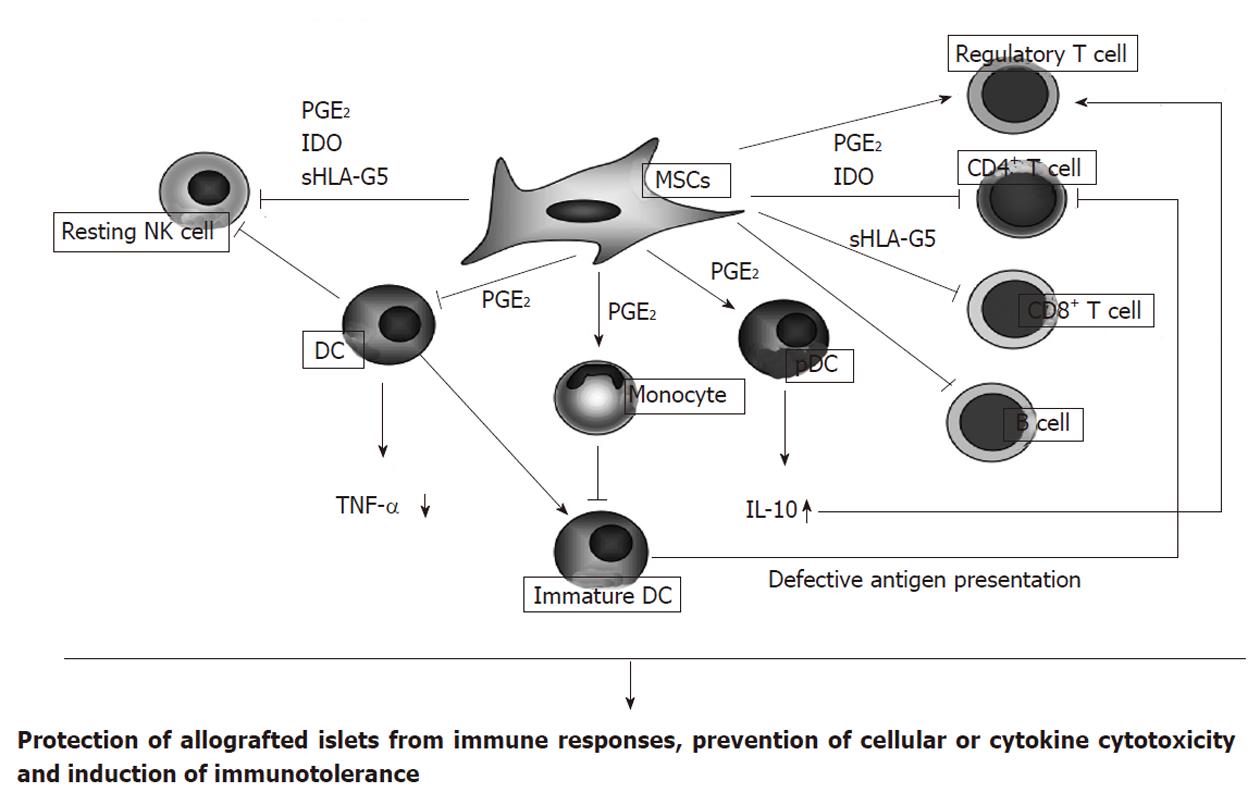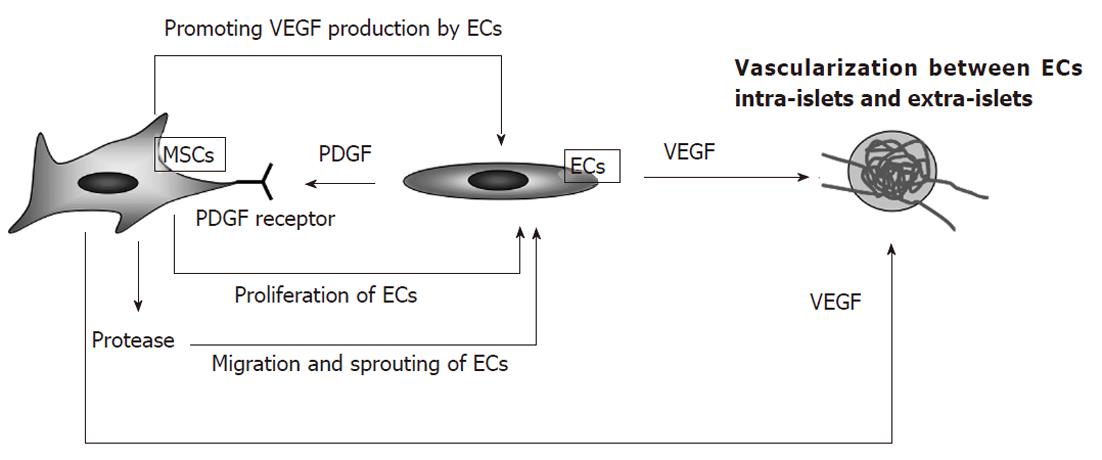Copyright
©2011 Baishideng Publishing Group Co.
World J Gastroenterol. Dec 21, 2011; 17(47): 5150-5155
Published online Dec 21, 2011. doi: 10.3748/wjg.v17.i47.5150
Published online Dec 21, 2011. doi: 10.3748/wjg.v17.i47.5150
Figure 1 Immunomodulatory effect of mesenchymal stem cells (modified and quoted from Uccelli et al[13]).
Mesenchymal stem cells (MSCs) can inhibit the proliferation and cytotoxicity of resting natural killer (NK) cells via the generation of mediators, including prostaglandin E2 (PGE2), indoleamine 2,3-dioxygenase (IDO) and soluble human leukocyte antigen (sHLA)-G5; MSCs inhibit the differentiation of monocyte to antigen presenting dendritic cells (DCs). MSCs also inhibit TNF-α production by DCs and upregulate IL-10 production by plasmacytoid DCs (pDCs): effects modulated by PGE2; MSCs directly inhibit CD4+ T cell, CD8+ T cell, and B cells that are involved in allogeneic cell rejection by releasing PGE2, IDO, or sHLA-G5. CD4+ T cell inhibition limits B cell proliferation and antibody production whilst CD8+ T cell inhibition prevents cytotoxicity. MSCs induce generation of immunomodulatory regulatory T cells that suppress immune activation, help to maintain homeostasis, and promote self tolerance by production of IL-10 from pDCs and by releasing HLA-G5. Thus, MSCs can promote immunotolerance and facilitate the engraftment of allogeneic islets.
Figure 2 Pro-angiogenic effect of mesenchymal stem cells.
The process of revascularization requires proteolytic digestion of the vascular wall and subsequent migration, proliferation, and differentiation of endothelial cells (ECs). Mesenchymal stem cells (MSCs) express platelet-derived growth factor (PDGF) receptors and respond to PDGF production by ECs during revascularization. MSC-derived proteases promote EC migration and immature EC sprouts and upregulate the expression of angiopoietin and vascular endothelial growth factor (VEGF) in ECs, thereby promoting both angiogenesis and vascular stability. MSCs also produce VEGF and induce neovascularization. MSCs promote both donor and recipient EC proliferation, EC sprout formation, the ingrowth of ECs into islets and the formation of a vascular network between intra- and extra-islet vessels.
- Citation: Sakata N, Goto M, Yoshimatsu G, Egawa S, Unno M. Utility of co-transplanting mesenchymal stem cells in islet transplantation. World J Gastroenterol 2011; 17(47): 5150-5155
- URL: https://www.wjgnet.com/1007-9327/full/v17/i47/5150.htm
- DOI: https://dx.doi.org/10.3748/wjg.v17.i47.5150










